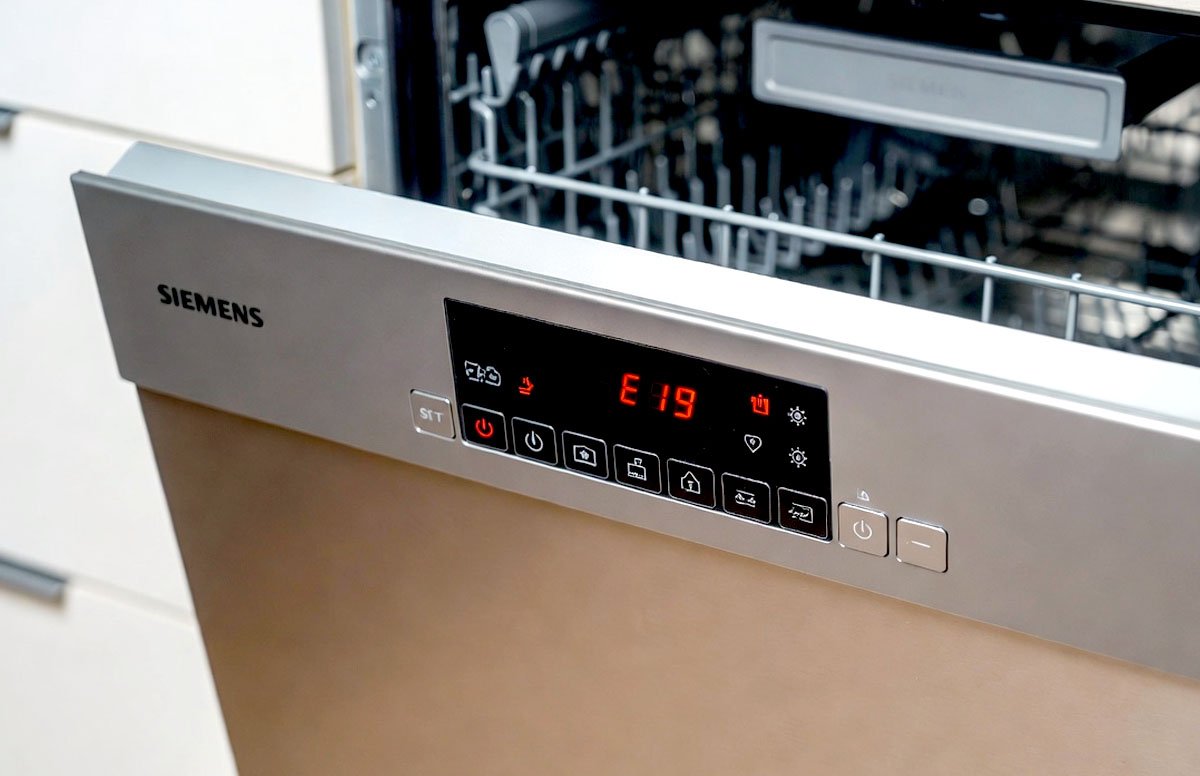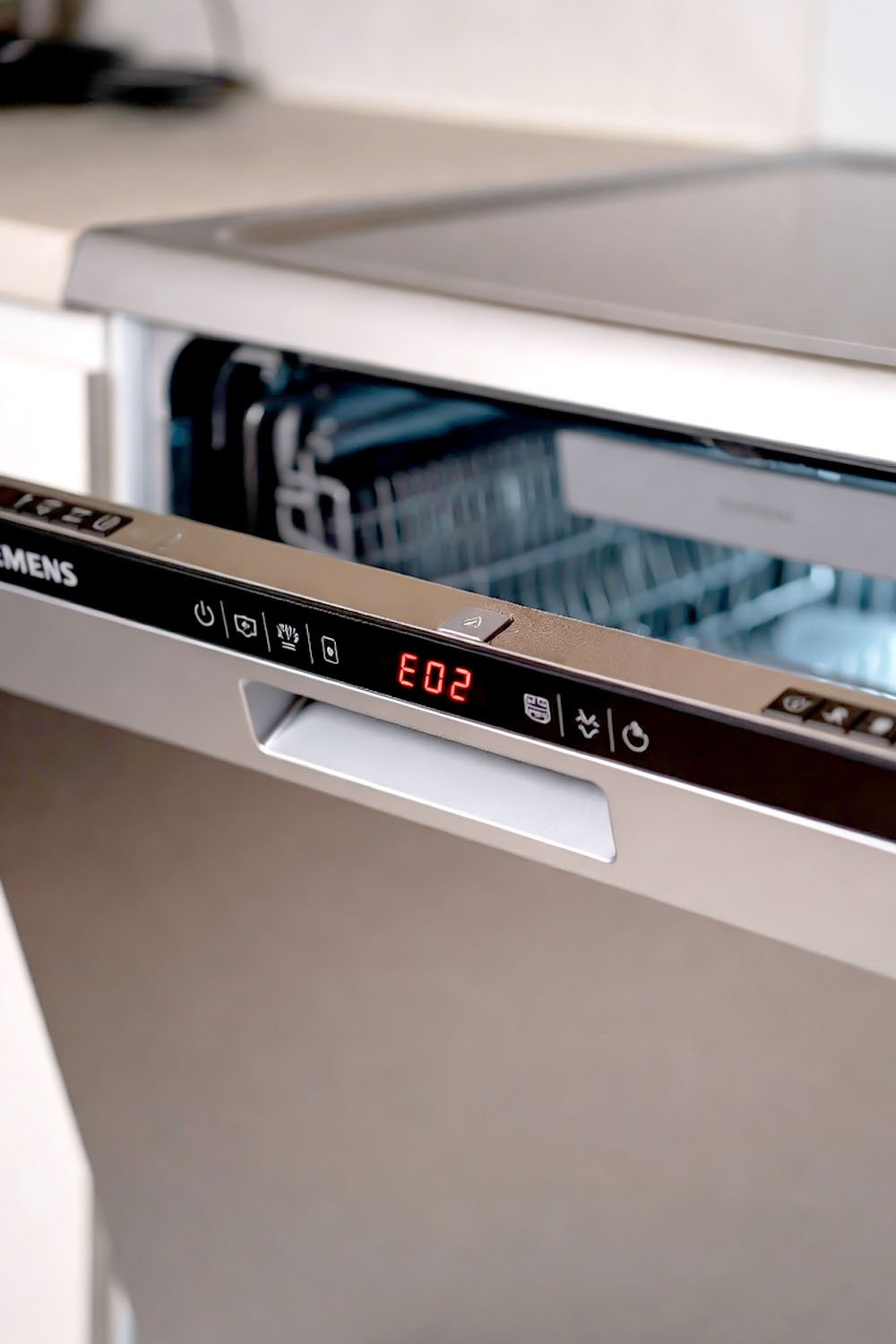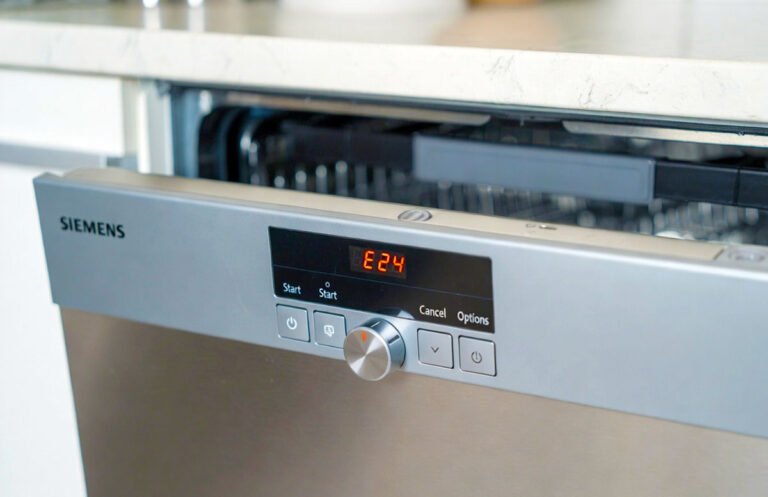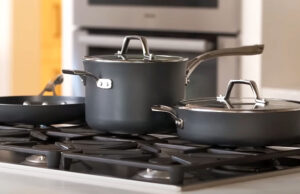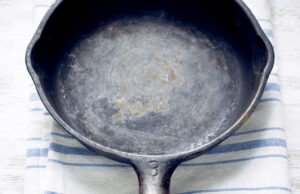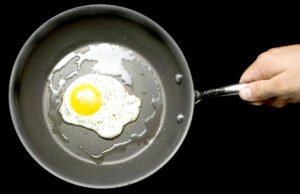As an Amazon Associate, I earn from qualifying purchases at no extra cost to you.
Is 48 Decibels Loud for a Dishwasher? Find Out the Real Truth
You open your dishwasher after dinner and wonder — is it supposed to be this noisy? Maybe it hums or rattles a bit, and suddenly, you start to worry. You check the label, and it says 48 decibels. But is 48 decibels loud for a dishwasher? The short answer is no, 48 decibels is not loud for a dishwasher. In fact, it’s considered pretty quiet. In this article, we will explain everything you need to know in very simple words. You’ll learn what 48 decibels really sounds like, and if it’s good for your kitchen.
What Does 48 Decibels Really Sound Like?
Many people don’t really know what decibels are. You see a number like 48 dB and think, is that loud or quiet? So let’s break it down in the easiest way. Decibels, or dB, are just a way to measure how loud a sound is. A lower number means a quieter sound. A higher number means a louder sound.
Now, think of some everyday sounds. Whispering is around 30 dB. Your refrigerator humming is about 40 dB. Normal conversation at home is around 60 dB. So, 48 dB falls right in between your fridge and talking. That means it’s not really loud.
If your dishwasher is 48 dB, that means it makes a soft sound. You will probably hear a gentle hum or water swooshing sound, but it won’t be something that stops your TV, your talking, or your thinking. Some people might even say it sounds peaceful.
But let’s also think of it this way. Many older dishwashers used to run at 60 dB or even more. Those would often be heard in the next room. They made noise like a washing machine. But dishwashers today are made to be quieter. So 48 dB is a good number. It means your machine is not too noisy.
Some brands even go below 45 dB, and those are called super quiet models. But 48 is still good and is often cheaper than the very quiet ones. You get a balance of sound and price.
So, if you’re looking at a new dishwasher or you already have one that says 48 dB, you don’t need to worry. That number means it will be quiet enough for everyday use. You can run it while you sleep or when guests are over.
- 48 dB sounds like soft rainfall
- It is quieter than normal talking
- It is quieter than old dishwashers
- You can still watch TV while it runs
- It won’t wake people up in other rooms
- It is considered a quiet dishwasher
Why Dishwasher Noise Level Matters
Many people don’t think about how loud their dishwasher is until they try to relax or talk and hear the loud clatter. That’s why knowing about noise levels is important. If your kitchen is close to your living room, a noisy dishwasher can be very annoying.
Let’s say you have an open kitchen. You just finished dinner and started the dishwasher. Now you want to watch a movie or talk with your family. If your dishwasher is loud, it becomes a background noise that makes it hard to hear or enjoy anything.
But if your dishwasher runs at 48 dB, it blends into the background. It becomes like soft white noise. Some people don’t even notice it’s running. That’s why many people are now paying more attention to noise ratings before buying.
Also, maybe you have a baby or a pet that gets scared by loud sounds. A dishwasher that runs quietly can keep your home more peaceful. You can run it at night or during nap times.
Noise levels also tell you something about the build quality. Most quiet dishwashers are better built. They have better insulation, better parts, and are usually energy efficient too.
So why does it matter? Because we all want comfort. We want clean dishes, but we also want a quiet home. A good dishwasher should do its job without shouting about it.
Now, what makes a dishwasher quiet? Here are some parts:
- Extra insulation inside the machine
- A motor that runs smoothly
- A pump that moves water without too much noise
- A strong door that seals sound inside
- Rubber or soundproof panels
All these things help lower the sound level. Brands like Bosch, KitchenAid, and LG are known for quiet models. They pay special attention to noise, especially in the 40s dB range.
- Noise level affects your comfort
- Quiet dishwashers help babies and pets
- Better noise rating often means better machine
- 48 dB is quiet enough for most homes
- A quiet machine can run at night easily
- Good brands focus on quiet technology
How 48 dB Compares to Other Dishwasher Noise Levels
So, now you know that 48 dB is not loud. But how does it compare with other dishwasher models? This part will help you see where 48 dB stands on the noise scale.
Dishwashers usually range between 38 dB to 60 dB. Here is a simple way to understand it:
- 38–44 dB: Super quiet, almost silent
- 45–49 dB: Quiet, low hum
- 50–55 dB: Normal sound, can be heard clearly
- 56–60+ dB: Loud, noticeable in other rooms
If your dishwasher is 48 dB, it sits in the quiet zone. It is not the quietest, but it is still better than most. It won’t interrupt your calls or stop your kids from doing homework in the next room.
Now, some brands advertise 38 dB models. That’s great, but they are also expensive. The difference between 38 and 48 dB is there, but not huge for most people. Only if you are super sensitive to sound or your kitchen is near your bedroom, you might want to go lower.
48 dB is a nice middle point. You get peace and still save money. That’s why it’s popular.
Let’s compare with some examples:
- Old dishwashers: 58–65 dB
- Budget models today: 52–56 dB
- Mid-range models: 46–49 dB
- Premium models: 38–45 dB
You see, 48 dB is already better than most average machines. It’s in the quiet zone without the super high price.
Also, remember, how your kitchen is made also affects how sound feels. If your kitchen has tiles and open space, sounds bounce more. But if you have curtains, wood, or carpet nearby, it can feel even quieter.
- 48 dB is quieter than budget machines
- It gives you peace at a lower price
- Perfect for open kitchens and small homes
- Close to high-end models in performance
- A good balance between cost and comfort
- Enough for daily peace without spending extra
Best Times to Use a 48 dB Dishwasher
You may think the time you run the dishwasher doesn’t matter, but it actually does. And if you have a 48 dB dishwasher, you have more freedom when choosing that time.
Because 48 dB is quiet, you can run your dishwasher at night. This is good if you have cheaper electricity at night. It also means your dishes will be ready by morning. Some people run it right before bed. The sound is soft, like background noise, and won’t disturb your sleep.
You can also run it during the day while working from home. Since it’s not loud, it won’t bother your meetings or your video calls. It’s quiet enough that you can forget it’s running.
If you have guests over, 48 dB won’t get in the way. You can start cleaning up while chatting and they won’t hear it much. That helps you clean up faster without needing to wait for everyone to leave.
Here are some great times to run a quiet dishwasher:
- After dinner while watching TV
- Overnight before bed
- During the day while working
- When guests are still visiting
- When the baby is napping
- Early morning while getting ready
Some dishwashers even have a delay start feature. That means you can set it to start later, like 2 or 4 hours later. That way, it runs when you’re sleeping or busy with something else. If it’s 48 dB, you won’t mind when it finally starts.
Also, during the hot summer, running it at night keeps your kitchen cooler. Less noise, less heat — that’s comfort.
- 48 dB gives you more options to run it
- Good for quiet homes and small spaces
- You can run it without stopping activities
- Delay start makes it even more helpful
- Doesn’t bother your evening or morning routine
- Perfect for busy and quiet families alike
Things That Affect Dishwasher Sound Besides Decibels
Even if your dishwasher is listed as 48 dB, sometimes it feels louder. That’s because other things also affect the sound. Let’s talk about them so you know what to look for.
First, the way your kitchen is built matters. If you have an open kitchen with hard floors, walls, and no rugs or curtains, sound travels more. So your 48 dB machine might feel like 50 dB. Adding soft things like rugs or even wall panels can help.
Second, how the dishwasher is installed. If it is not placed firmly, it may shake or vibrate. That adds extra noise. A tight and correct installation is important.
Third, the age and condition of your dishwasher. A 48 dB machine that’s 5 years old and dirty might sound louder than a brand-new one. So regular cleaning and checking parts can help keep the noise low.
Also, the type of wash cycle matters. Heavier wash modes use more water and make more sound. Light or eco modes are usually quieter.
If your dishes are banging inside, it also creates noise. Load them carefully. Don’t let plates touch each other too much. Keep pans in the right position. That also helps reduce extra clatter.
Let’s not forget the kind of dishes. Glass, steel, and heavy pans sound different when water hits them. You may hear more ping or clink noises depending on what’s inside.
- Room design can change how loud it feels
- Loose installation makes noise worse
- Dirty parts can cause loud sounds
- Loading dishes the wrong way adds clatter
- Wash modes affect how loud it runs
- Types of dishes change sound inside the machine
When You Should Worry About Dishwasher Noise
Most of the time, 48 dB is nothing to worry about. But if your dishwasher seems louder than that or starts making new sounds, it might be time to check.
Some sounds are normal, like water swooshing, light humming, or even some gurgling. But if you hear banging, screeching, or loud grinding, that’s not normal. That could mean something is wrong inside.
Also, if your dishwasher used to be quiet and now it’s louder, that’s a sign. Maybe a part is loose or wearing out. Maybe the filter is clogged, or the motor is struggling. A professional can check it.
If your machine is 48 dB but sounds like 60 dB, and nothing else in the kitchen changed, it could be a problem with the pump, motor, or fan.
Here are some signs to look for:
- Sharp or high-pitched squeaks
- Thumping or shaking sounds
- Long loud noises that were not there before
- Sound of water leaking or dripping outside
In these cases, it’s better to stop the machine and check. Call a repair person or use the manual to check parts. Sometimes, it just needs cleaning. Other times, a part might need to be replaced.
You don’t have to panic. Many times, fixing the noise is easy and cheap. But don’t ignore loud new sounds, even on a 48 dB machine.
- 48 dB should sound soft and even
- New noises may mean something is wrong
- Filters and parts can cause louder noise
- Repairs can fix most sound problems
- Don’t ignore sounds that feel sharp or sudden
- Checking early can save money and stress
Final Thoughts
Having a dishwasher that runs at 48 dB is a smart and peaceful choice. It means you get clean dishes without loud noise. It’s not the quietest on the market, but it’s quiet enough for most homes. Whether you live in an apartment, a small house, or a busy home, 48 dB gives you the balance of peace and price. You can talk, sleep, or work without being disturbed. Just remember to take care of it, and it will stay quiet for years.
Frequently Asked Questions (FAQs)
Is it okay to run a 48 dB dishwasher at night?
Yes, it is totally okay to run a 48 dB dishwasher at night. It is quiet enough that most people will not hear it from other rooms. You can start it before going to sleep, and the soft sound will not bother you. It sounds like gentle white noise or soft rain. Many people run their dishwasher at night to save time or energy. If your home has night-time power savings, it also helps save money. Always make sure it is installed correctly to keep it quiet.
Is it true that 48 dB dishwashers use less power?
Not always. The noise level and power use are different things. A 48 dB dishwasher can be energy efficient, but not just because of the sound level. Look for an energy star label to know if it saves power. Many quiet models also have good power ratings, but it’s not a rule. Just because it is quiet doesn’t mean it uses less electricity. You have to check the energy rating and water use separately from the sound level.
Can I talk on the phone while the dishwasher is running?
Yes, with a 48 dB dishwasher, you can talk on the phone without any problem. The sound is soft and in the background. It will not interrupt your voice, and most phones will not even pick up the sound. If your kitchen and living room are connected, the low sound level will make it easy to talk or listen to music. This is one of the best parts of having a quiet dishwasher.
Can a 48 dB dishwasher hurt my baby’s sleep?
No, a 48 dB dishwasher is very unlikely to hurt your baby’s sleep. It makes a soft humming noise, which can even help some babies sleep better. It sounds like soft rain or wind. As long as the dishwasher is working properly and not making loud bangs or squeaks, it is safe to use around babies and toddlers. Just avoid running it during deep sleep if your baby is extra sensitive to any sound.
Do I need to buy the quietest model?
Not really. You only need the quietest model (like 38–42 dB) if your kitchen is right next to your bedroom or if you are very sensitive to sound. A 48 dB dishwasher is already very quiet and works well for most people. The super quiet models cost more, and the sound difference is not huge. So unless you need a very silent space, 48 dB is usually more than enough.
Do I need to clean my dishwasher often to keep it quiet?
Yes, cleaning your dishwasher often helps keep it quiet. When food bits or grease block the filter or spray arms, the machine works harder and makes more noise. A simple rinse or a deep clean once a month helps a lot. It keeps the motor and water system working smoothly. Also, clean around the door seal and check for loose items inside. This helps the 48 dB sound stay soft and calm.
Is it normal to hear some water sounds in a 48 dB dishwasher?
Yes, it is very normal to hear water sounds in a 48 dB dishwasher. The sound of water spraying, draining, or gently hitting the dishes is part of how it works. These sounds are soft and not harsh. If the sound is steady and doesn’t come with banging or squealing, then everything is okay. The sound of water just means it’s doing its job.
Can 48 dB feel louder in some kitchens?
Yes, in some kitchens, 48 dB might feel a little louder. This happens if your kitchen has lots of hard surfaces like tiles, metal, and no soft items to absorb the sound. The sound can bounce off the walls and feel louder than it is. But if your kitchen has curtains, rugs, or wood, it might feel quieter. The way your space is made changes how the sound feels, even if the number stays the same.

